I have been working on a 3d-game-engine and I encountered a problem with shaking objects:
If the camera is rotated (not translated), then the objects start to shake. Furthermore, I noticed that after one orbit (it's a prototype of a space simulator) the shaking is as low as when I started the game. I assume the camera coordinates are almost at zero when the shaking is not that worse.
The camera is bound to the object so it should be unlikely that the shaking comes from the physical coordinates of the object that shake, because then the camera should shake, too.
I calculate the view-and-projection-matrix like this:
cameraAndProjectionMatrixSmallObjects =
glm::perspective(glm::radians(70.f), 1.9f, 0.001f, 100.0f);*
glm::lookAt(worldPosition, heading + worldPosition, up);
I believe it could be a problem with floating-point-precision however if it is something like that I don't know how to solve it.
